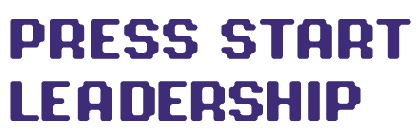Redefining Productivity: Embracing a Results-Oriented Approach in Crafting Video Games
In the ever-evolving landscape of video game development, the traditional metrics of productivity, often measured in hours spent, are undergoing a significant transformation. This comprehensive exploration delves into the shift from a time-centric to a results-focused approach in game development. Understanding how outcomes and results, rather than hours, can drive innovation, creativity, and ultimately, success in this dynamic industry is crucial for developers, team leaders, and studio executives alike.
The Traditional Hours-Based Model in Game Development
Traditionally, the video game industry, like many others, has often equated long hours with productivity and commitment. This approach, deeply ingrained in the industry’s culture, manifests in extended workdays and the notorious ‘crunch time’ – a period of intense work just before a game’s release.
The Culture of Crunch: Crunch culture in game development often means weeks, if not months, of prolonged working hours. While initially seen as a necessary evil to meet deadlines, this practice has come under scrutiny for its impact on employee well-being and the overall quality of the final product.
The Hourly Measurement of Productivity: The reliance on the clock as a measure of productivity in game development has often led to the valuing of quantity over quality. This perspective can obscure the true indicators of progress and innovation in game creation.
Understanding the Shift Towards Results-Oriented Development
The shift from an hours-based to a results-oriented approach in game development is gaining momentum. This paradigm change focuses on the value of the output rather than the time spent.
Defining Results-Oriented Development: Results-oriented development emphasizes the completion of tasks, achievement of objectives, and quality of output, as opposed to the number of hours worked. It’s a mindset that prioritizes efficiency, creativity, and goal attainment.
The Benefits of a Results-Focused Approach: Adopting a results-oriented model can lead to higher quality games, increased employee satisfaction, and a more sustainable work environment. It encourages developers to find the most efficient pathways to achieve their goals.
Measuring Success Beyond the Clock
Transitioning to a results-oriented model requires redefining how success is measured in game development. This involves setting clear, achievable goals and evaluating progress based on the completion and quality of these objectives.
Setting Clear Objectives: Establishing well-defined, achievable goals is crucial. These objectives should be specific, measurable, attainable, relevant, and time-bound (SMART).
Quality vs. Quantity: Emphasize the importance of the quality of work. Encourage developers to focus on creating meaningful, impactful game elements rather than simply completing a set number of hours.
Implementing a Results-Oriented Model in Game Development
Implementing this model requires a cultural shift within the studio, along with changes in management practices and team dynamics.
Changing the Studio Culture: Fostering a studio culture that values results over hours requires buy-in from all levels, especially management. It involves promoting a work-life balance and recognizing that long hours are not synonymous with productivity.
Managing Teams for Optimal Results: Effective team management in a results-oriented model involves providing clear direction, regular feedback, and the necessary resources to accomplish objectives. It also means trusting team members to manage their time effectively.
The Role of Leadership in a Results-Oriented Approach
Leadership plays a pivotal role in the successful transition to a results-oriented development model. Leaders must not only advocate for this approach but also embody the principles it stands for.
Leading by Example: Leaders should model the behavior they wish to see, demonstrating how to balance efficiency with creativity and well-being.
Providing Support and Resources: Ensuring teams have the tools, support, and autonomy they need to achieve their objectives is essential. This includes offering training, software, and a conducive work environment.
Challenges and Solutions in Shifting the Paradigm
While the benefits of a results-oriented approach are clear, the transition can present challenges, particularly in an industry accustomed to the hours-based model.
Overcoming Resistance to Change: Resistance can come from both management and team members accustomed to traditional practices. Addressing concerns through open communication and demonstrating the benefits of the new model can help in easing this transition.
Maintaining Accountability: Without the structure of an hours-based system, maintaining accountability can be a challenge. Implementing regular check-ins and progress reports can help ensure that teams stay on track.
We’ve examined the traditional model, the benefits of focusing on outcomes, and the initial steps toward implementing this change. As we proceed, we will explore advanced techniques in results-oriented management, case studies from successful studios, and strategies to sustain this model for long-term success and innovation in game development.
Continuing from our exploration of the foundational aspects of a results-oriented approach in video game development, we now delve into more advanced techniques, real-world case studies, and strategies to sustain and maximize the benefits of this model. This section aims to provide deeper insights and practical steps for leaders and teams in the gaming industry to fully embrace and thrive under a results-focused paradigm.
Advanced Techniques in Results-Oriented Management
In a results-driven environment, advanced management techniques are crucial for maintaining productivity and fostering innovation.
Agile Methodology in Game Development: The Agile methodology, with its emphasis on flexibility, iterative progress, and collaborative effort, aligns well with a results-oriented approach. Implementing Agile practices such as Scrum or Kanban can enhance team coordination and efficiency.
Prioritizing Tasks for Maximum Impact: Effective prioritization is key in a results-focused model. Techniques like the Eisenhower Matrix or MoSCoW Method can help teams identify and focus on tasks with the highest impact on game development goals.
Time Management and Productivity Tools: Leveraging time management and productivity tools can help teams organize and track their work. Tools like Trello, Asana, or JIRA can be instrumental in monitoring progress and keeping teams aligned with objectives.
Sustaining a Results-Oriented Culture
Maintaining a results-oriented culture over the long term requires continuous effort and adaptation.
Regular Training and Development: Provide ongoing training and development opportunities for team members to enhance their skills in line with the studio’s objectives. This includes workshops, seminars, and access to learning resources.
Feedback Loops and Continuous Improvement: Establish regular feedback loops where team members can share their experiences, challenges, and suggestions for improvement. Use this feedback to refine processes and policies continually.
Celebrating Success and Learning from Setbacks: Recognize and celebrate team achievements in meeting objectives. Similarly, treat setbacks as learning opportunities to improve future outcomes.
Measuring Results and Evaluating Success
In a results-oriented model, defining and measuring success is crucial for understanding the effectiveness of this approach.
Setting Quantifiable Goals: Develop clear, quantifiable goals for projects and tasks. This could include specific development milestones, quality benchmarks, or user engagement metrics.
Utilizing Analytics and Data: Use analytics and data to measure the success of different initiatives. This can help in making informed decisions about future projects and strategies.
Conducting Regular Reviews: Hold regular review sessions to assess the progress towards goals, discuss challenges, and identify areas for improvement.
Future Trends and Evolving Practices
As the video game industry continues to evolve, staying abreast of future trends and practices in management and productivity is essential.
Embracing New Technologies: Stay updated on new technologies and tools that can aid in a results-oriented approach, such as AI-driven project management tools or advanced collaboration platforms.
Anticipating Industry Changes: Be prepared to adapt to changes in the gaming industry, whether it’s new gaming platforms, shifting consumer preferences, or emerging markets.
Leading the Way in Workplace Innovation: Position your studio as a leader in adopting innovative workplace practices. Share your experiences and learnings at industry events and through publications to contribute to the broader conversation on productivity and workplace culture in gaming.
Final Thoughts:
Transitioning to a results-oriented approach in video game development represents a significant shift in how studios operate and measure success. By focusing on outcomes and results, rather than just hours worked, studios can unlock greater creativity, efficiency, and job satisfaction among their teams. This comprehensive guide has provided insights and strategies to help you implement and sustain this model, positioning your studio for long-term success in the dynamic and competitive world of video game development.
As the industry continues to grow and change, embracing a results-focused paradigm could be the key to developing groundbreaking games that captivate audiences worldwide while fostering a positive and productive work environment for your team.
Thank you for reading this article to the end. I hope it has been informative and helpful. If you’d like to learn more about the topics we covered, I invite you to check out my podcast and my YouTube channel where I delve into these subjects in more depth.
Additionally, I would love to stay in touch and keep you updated on all the latest developments and insights in the world of leadership. That’s why I encourage you to sign up for my newsletter. Not only will you receive regular updates, but as a thank you for joining, I will also send you my free eBook, “5 Heroic Leadership Skills.” This eBook is packed with practical tips and strategies that will help you take your leadership skills to the next level.
So don’t wait! Sign up for my newsletter today and start your journey towards becoming a more effective and inspiring leader. I can’t wait to hear from you.
Work With Me!
If you’re on the quest to elevate your team’s leadership, production, or game design capabilities, I’m here to assist! Leveraging extensive experience and a strategic approach, I offer personalized audits, bespoke workshops, and leadership retreat facilitation to drive your team toward excellence. My commitment is to provide efficient, reliable, and proven support, ensuring you have the tools and insights needed to thrive. Ready to unlock your team’s full potential and achieve unparalleled success? Don’t hesitate—Press Start on your journey to transformation today! Feel free to reach out directly to discuss how we can tailor a solution to meet your unique needs and goals. Let’s connect and take your team’s performance to the next level!
🔗 www.pressstartleadership.com
📧 contact@pressstartleadership.com


